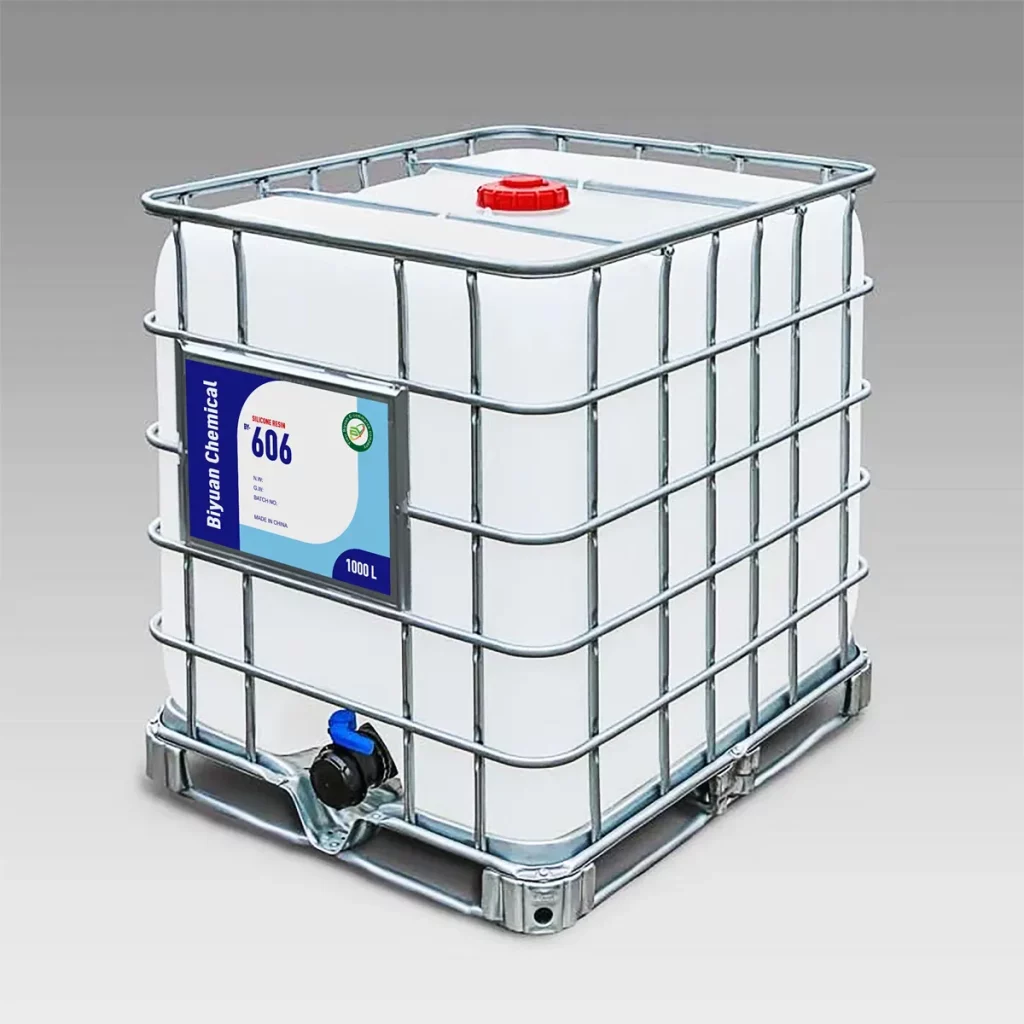SILICONE RESIN FOR ELECTRONICS & ELECTRICAL - Silicone Resin Factory&supplier
Silicone Resin
Everything you need to know about our products and company
Silicone resins provide essential dielectric protection and thermal stability for electronic components. These materials offer reliable insulation (-50°C to 200°C operation) with low signal loss characteristics.
Featuring UL 94 V-0 flame resistance and superior moisture protection, they safeguard sensitive circuits in consumer and automotive applications. Their flexible formulation prevents cracking during thermal cycling while maintaining performance in harsh conditions.
Compatible with automated manufacturing processes, these resins deliver efficient production solutions that meet international electronic standards for next-generation devices.
Basic Product Information
Chemical Properties
High Si-O bond energy (452 kJ/mol) enables long-term service at 200–300°C, with some grades tolerating higher temperatures without decomposition.
Stable molecular structure resists acids, alkalis, and solvents (tested per ASTM D543 at 10% concentration for 168h), providing substrate protection.
Maintains performance stability in oxidative environments due to inert siloxane backbone (O₂ exposure tests show <5% property change after 1000h at 150°C).
Contains hydroxyl/vinyl groups (typically 2–5 wt%) for crosslinking customization, allowing property optimization via:
Hydrosilylation
Condensation curing
Free radical reactions
Physical Properties
Liquid (viscosity 50–10,000 mPa·s at 25°C)
Solid (powder: 20–100 μm; pellets: 1–3 mm)
Compatible with toluene, xylene, and ketones (solubility ≥30 wt%), facilitating coating formulations.
Dielectric constant: 2.6–3.2 (1 MHz, ASTM D150)
Volume resistivity: >10¹⁵ Ω·cm (IEC 60093)
Surface tension: 20–24 mN/m (vs. water’s 72 mN/m) ensures superior substrate wetting (contact angle <10° on metals).
Cured characteristics adjustable via formulation:
Hardness: Shore A 20–90 (ASTM D2240)
Elongation: 50–300% (ASTM D412)
Taber abrasion: <50 mg/1000 cycles (CS-10 wheel, 1kg load)

Product Functions
Applications
Core Advantages
| Advantages | Technical Parameters | Industry Value |
| Ultra-high electrical insulation | Volume resistivity ≥ 10¹⁵ Ω·cm, dielectric constant ≤ 3.0 (at 1 MHz) | Ensures the safe and stable operation of electronic devices, reduces the risk of electric leakage, and is suitable for various high-precision electronic devices and high-voltage electrical systems. |
| Excellent thermal stability | Long-term operating temperature range from -50°C to 250°C, and some can reach above 300°C | Meets the working requirements of electronic and electrical devices in high-temperature environments, reduces device failures caused by thermal failure, and extends the service life of devices. |
| Outstanding moisture resistance | Water absorption rate ≤ 0.5% (after 24-hour immersion) | Effectively resists the erosion of moisture on electronic components, ensures the normal operation of electronic devices in a humid environment, and improves the reliability and stability of devices. |
| Good chemical stability | Resistant to 10% acid, 10% alkali, and common organic solvents (no obvious corrosion after 168 hours) | Suitable for the protection of electronic and electrical devices in harsh environments such as the chemical and marine industries, and reduces equipment maintenance costs. |
| Low-stress characteristics | Curing shrinkage rate ≤ 2% | During the electronic packaging process, effectively reduces the stress generated by thermal expansion and contraction, protects electronic components from stress damage, and improves the reliability of packaging. |
Market Value
Temperature Resistance Range: -60°C to 300°C (short-term resistance to 500°C)
Dielectric Strength: >20 kV/mm (1mm thickness)
Volume Resistivity: >10¹⁵ Ω·cm (at 200°C)
Dielectric Constant (1MHz): 2.8–3.2
Dissipation Factor: <0.002
Arc Resistance: >180 seconds (ASTM D495)
Viscosity Adjustment Range: 500–50,000 cP (25°C)
Diverse Curing Methods: Thermal/UV/moisture curing
Adhesive Strength with Metal/Ceramic: >10 MPa
Global Power Electronics Market CAGR: 9.8% (2023–2028)
5G Base Station Construction Density Increase: 30–50%
High-voltage System Voltage Platform in Electric Vehicles Upgraded to 800V+
Substitution Space for Traditional Epoxy Resins: $3.5B (2025)
Premium Pricing Capability for High-end Products: 40–60%
Promotion Driven by Halogen-free Material Regulations
Device Lifespan Extended by 2–3 Times
System Energy Consumption Reduced by 15–20%
Maintenance Costs Decreased by 30–40%
Experimental Data and Case Studies
Experimental Data
| Test Item | Test Conditions | Results | Benchmark Comparison |
| Insulation Performance | High-Voltage Breakdown Test (20kV) | No breakdown, no leakage | Standard epoxy resin: Breakdown at 15kV |
| Moisture & Heat Resistance | 85°C/85%RH, 1000h | No delamination, no degradation | Polyurethane coating: Failed at 500h |
| Thermal Conductivity | Thermal conductivity 0.2 W/(m·K) | Better than standard materials | Traditional materials: 0.1 W/(m·K) |
Case Studies
Issue: Traditional insulation materials degrade easily in high-temperature, high-humidity environments, leading to cable failures.
Solution: Applied silicone resin insulation coating.
Result: Cable lifespan extended to 20 years, with 80% reduction in failure rate.
Requirement: Address LED brightness decay caused by UV exposure and high temperatures.
Solution: High-transparency silicone resin encapsulation.
Effect: >95% brightness retention after 5 years, far exceeding industry standards.
Issue: Battery packs prone to short circuits under high temperatures.
Solution: Flame-retardant silicone resin encapsulation (oxygen index ≥30%).
Effect: Flame resistance extended to 20 minutes, significantly surpassing national standards.
Preparation Process, Core Technologies, and Precautions
Ultra-Pure Preparation Process System
Breakthrough Core Technologies
Precautions
Packaging & Ordering
Packaging: 200kg/1000kg plastic drums (customizable).
Our most popular products loved by customers worldwide
Silicone resins transform release agent technology through their exceptional thermal stability and non-stick properties. These high-performance materials create durable, cross-linked release layers that prevent adhesion in demanding molding and casting applications. The resins withstand temperatures exceeding 300°C while maintaining consistent release p.
Silicone resins deliver breakthrough performance in coating applications through their exceptional weather resistance and thermal stability. These advanced materials form durable, protective networks that maintain integrity under extreme environmental conditions, including prolonged UV exposure and temperatures ranging from -50°C to 300°C. Meeting inter.
Silicone resins significantly enhance plastic and rubber products through their unique cross-linking capabilities and surface modification properties. These high-performance additives improve thermal stability, weather resistance, and processing characteristics across various polymer systems. Meeting international industry standards, silicone resins off.
Silicone resins deliver exceptional thermal stability (up to 400°C) and mechanical strength to composite materials. These high-performance resins improve processing efficiency while enhancing electrical insulation and flame retardancy. Compatible with organic and inorganic fillers, they ensure uniform distribution and strong interfacial adhesion. The re.